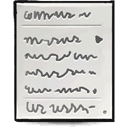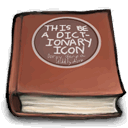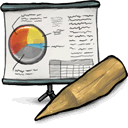Mitropa Cup history
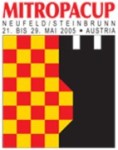
The Mitropa Cup (often spelled as Mitropacup or Mitropa-Cup) is the annual team chess tournament for national teams from Central Europe. The word
Mitropa is a derivative of German
Mittel Europa (Central Europe). The idea of the Mitropa Cup came from Gertrude Wagner, who wanted to create a chess team tournament after the example of respective
football competition. She, together with her husband Karl and the president of the Austrian Chess Federation Kurt Jungwirth were the founders and organizers of the tournament.
The event commenced in 1976 in Innsbruck. Germany, Austria, Yugoslavia, Switzerland, Italy and Luxembourg participated (Austria and Yugoslavia with two teams). Germany won this first tournament. On the next year the second edition took place in Bad Kohlgrub, West Germany where Austria chalked up their first and only ever Mitropa Cup trophy.
| Gertrude Wagner (1925-2009) |
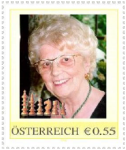 is Austrian player and well-known arbiter (IA since 1972). Her chess career was heavily influenced by Karl Wagner, an avid chess player from Graz, who she met in 1950 and married a few years later. For many years they were world's only couple of licensed chess arbiters. In 1951 she was Austrian national champion, but she soon became respected arbiter and manager. She was the arbiter of +100 international tournaments in 15 countries and seven Olympiads. In 1981 she was the first woman ever to umpire the world championship match (Karpov-Kortschnoj). She also held many leading offices in FIDE and ÖSB. She was founder of annual Mitropa Cup and recent years she has been directing the Karl-Wagner-Memorial, a tournament in the memory of her passed husband. is Austrian player and well-known arbiter (IA since 1972). Her chess career was heavily influenced by Karl Wagner, an avid chess player from Graz, who she met in 1950 and married a few years later. For many years they were world's only couple of licensed chess arbiters. In 1951 she was Austrian national champion, but she soon became respected arbiter and manager. She was the arbiter of +100 international tournaments in 15 countries and seven Olympiads. In 1981 she was the first woman ever to umpire the world championship match (Karpov-Kortschnoj). She also held many leading offices in FIDE and ÖSB. She was founder of annual Mitropa Cup and recent years she has been directing the Karl-Wagner-Memorial, a tournament in the memory of her passed husband.
In 1998 she was elected the honorary member of FIDE. She is also honorary citizen of Graz. Acquaintances know her as a competent and inviolable person. Despite of her dignified age, she is commonly known as "Gerti". |
|
From 1978 until 1991 West Germany and Yugoslavia dominated the event just to rotate at the top of the table, with the sole exception of 1982, when France took their first win playing on the home soil. The list of participating teams was very stable: Yugoslavia, West Germany, France, Austria, Switzerland, Italy and Luxembourg. The early 1990s saw major political changes in Central and Eastern Europe, i.e. dissolution of the Soviet Union, Czechoslovakia and Yugoslavia as well as unification of two German states. Yugoslavia withdrew from Mitropa Cup in 1991 following factual dissolution of the Yugoslav federation and the UN embargo imposed on Serbia. The former Yugoslav republics to enter the competition were Slovenia and Croatia. It must be stressed that team labelled Yugoslavia, who won the trophy in 1991, comprised of Slovenian players. Czechoslovakia appeared in 1991 but as soon as the state federation was dissolved two independent republics, the Czech Republic and Slovakia emerged to join the cup. Another landmark event was Hungary's accession in 1990. Luxembourg left the competition in 1990 while the Netherlands appeared twice: in 1993 and 1995, when they took second position.
The latest history of the Mitropa Cup, with its size extended from 7 to 10 teams, saw variety of results, with Hungary and Slovenia being most successful sides. The 2005 edition held in Austria was the first one organized for both men and women, although the very first edition of
women's cup took place in Italy in 2002. Recent years there have been some junior events held under the Mitropa Cup name, but these were all individual tournaments.
It must be noted that the first tournament to be called the Mitropa Cup was held in 1953 in Vienna drawing six teams, but it has no direct connection to the series headed by Mrs. Wagner.
Winners 1976-2011: 8x Yugoslavia, 6x (West) Germany, 4x Hungary, 4x Croatia, 3x Slovenia, 3x France, 1x Austria, 1x Italy
 The Mitropa Cup (often spelled as Mitropacup or Mitropa-Cup) is the annual team chess tournament for national teams from Central Europe. The word Mitropa is a derivative of German Mittel Europa (Central Europe). The idea of the Mitropa Cup came from Gertrude Wagner, who wanted to create a chess team tournament after the example of respective football competition. She, together with her husband Karl and the president of the Austrian Chess Federation Kurt Jungwirth were the founders and organizers of the tournament.
The Mitropa Cup (often spelled as Mitropacup or Mitropa-Cup) is the annual team chess tournament for national teams from Central Europe. The word Mitropa is a derivative of German Mittel Europa (Central Europe). The idea of the Mitropa Cup came from Gertrude Wagner, who wanted to create a chess team tournament after the example of respective football competition. She, together with her husband Karl and the president of the Austrian Chess Federation Kurt Jungwirth were the founders and organizers of the tournament. is Austrian player and well-known arbiter (IA since 1972). Her chess career was heavily influenced by Karl Wagner, an avid chess player from Graz, who she met in 1950 and married a few years later. For many years they were world's only couple of licensed chess arbiters. In 1951 she was Austrian national champion, but she soon became respected arbiter and manager. She was the arbiter of +100 international tournaments in 15 countries and seven Olympiads. In 1981 she was the first woman ever to umpire the world championship match (Karpov-Kortschnoj). She also held many leading offices in FIDE and ÖSB. She was founder of annual Mitropa Cup and recent years she has been directing the Karl-Wagner-Memorial, a tournament in the memory of her passed husband.
is Austrian player and well-known arbiter (IA since 1972). Her chess career was heavily influenced by Karl Wagner, an avid chess player from Graz, who she met in 1950 and married a few years later. For many years they were world's only couple of licensed chess arbiters. In 1951 she was Austrian national champion, but she soon became respected arbiter and manager. She was the arbiter of +100 international tournaments in 15 countries and seven Olympiads. In 1981 she was the first woman ever to umpire the world championship match (Karpov-Kortschnoj). She also held many leading offices in FIDE and ÖSB. She was founder of annual Mitropa Cup and recent years she has been directing the Karl-Wagner-Memorial, a tournament in the memory of her passed husband.